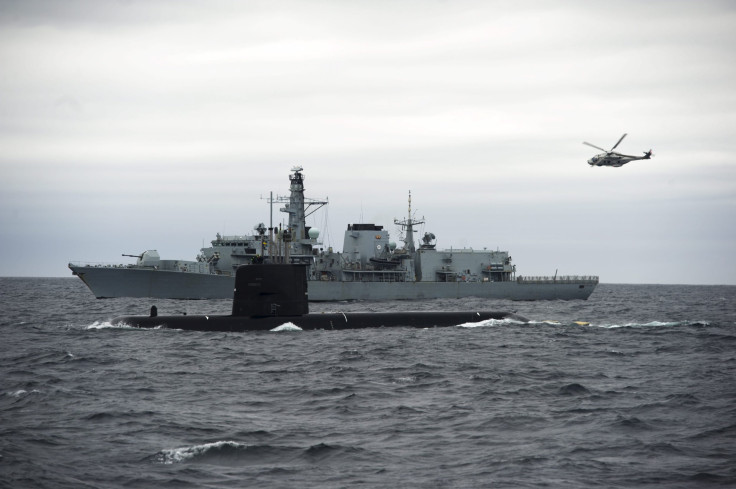Chinese Survey Ship Returns With Escorts To Disputed Vietnamese Waters

A Chinese survey ship has returned to disputed South China Sea claimed by Vietnam, where vessels from the two countries were involved in a month-long standoff, after appearing to have left it last week, according to ship tracking analysis.
The Haiyand Dizhi 8 had returned to the South China Sea on Tuesday, accompanied by at least two Chinese coastguard vessels, according to reports from U.S. based Centre for Advanced Studies (C4ADS). The survey ship and its company are closely being followed by several Vietnamese ships.
The survey ship had first entered the disputed waters surrounding the Spratly Islands in July, where it appeared to be conducting a seismic survey. After a month-long standoff, the ship had left the area on Aug. 7 according to Vietnam, but returned again this week after having docked at the Fiery Cross Reef in between.
Chinese survey ship returns to disputed waters claimed by Vietnam https://t.co/Rso0DVB9BR pic.twitter.com/nDfG74RdYp
— Al Jazeera Breaking News (@AJENews) August 14, 2019
During the standoff, Haiyang Dizhi 8 had been accused by Vietnam of illegally operating within a Vietnamese oil block and demanded them to withdraw their vessels from the Vietnamese economic zone.
The oil-rich sea is a potential global flashpoint, with China being accused of using military pressure tactics to enforce its authority in the disputed waters. The stand-off between neighboring South Asian countries and China has also led to increasing tensions between Beijing and Washington with China being criticized for its “bullying behavior.”
U.S. Secretary of State Mike Pompeo has accused China of “coercion” in the disputed South China Sea. China, however, invokes the long-dead “Nine-Dash Line” claim historical authority over most of the disputed South China Sea, which is currently claimed by Taiwan, Malaysia, the Philippines and Brunei.
The presence of the ship is seen as a potential threat to PetroVietnam's offshore oil and gas business. According to the Japan Times, PetroVietnam's produce accounts for 20 percent of Vietnam's GDP.
China has also been accused of intruding the waters that fall under the economic zone of the Philippines. This resulted in the Philippines banning all foreign survey ships from entering their territory, on Monday.
© Copyright IBTimes 2024. All rights reserved.




















